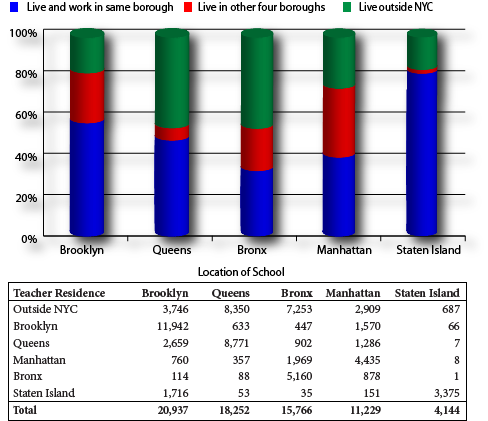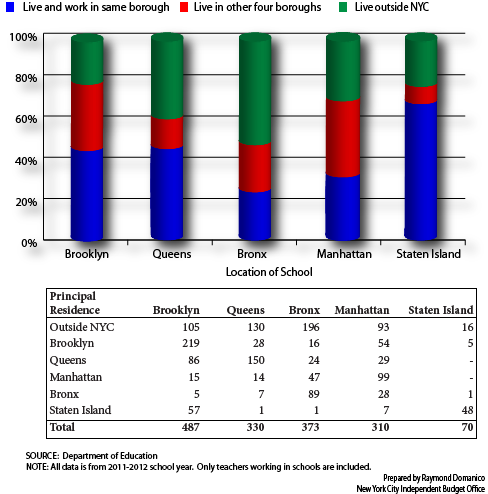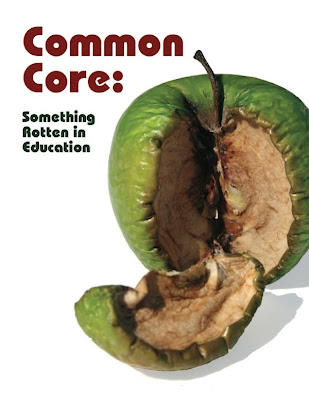Five Messages About Public Education That Don't Sell (and Ones That Will)

By
Jeff Bryant, Campaign for America's Future Op-Ed
Wednesday, 31 July 2013-- truthout.org
The following is from a talk given at a meeting of the Young Elected Officials last week in Washington, D.C.
Thanks for having me here today. I'm feeling a little out of context at a meeting for the Young Elected Officials. And it's not because I'm not an elected official.
But I suppose there are some advantages and benefits to aging. Wisdom, however, is not one of them, as the demographics of Fox News bear out.
In aging you have experiences that you can reflect and act on over time and experiences that are unique to your generational cohort. For instance, how many of you have deep expertise in junk mail? That happens to be my work in trade as I've been in that business for over 20 years; although, the industry is nothing like what it once was and is rapidly going the way of the dinosaurs.
Also, how many of you were in school in the South during the early years of forced integration of the races? I was in second grade in Dallas, Texas and remember vividly the day they bused the poor kids across town to my school.
When they brought the poor kids into my class, there was a girl named Brenda who didn't have on any shoes. And there was a little boy named Jerald who still sucked his thumb and was basically dressed in rags.
I think I learned more that day than I did the rest of my second-grade year. I leaned that public schools are where our nation's grossest injustices – the poverty, neglect, and malnutrition of children – are first exposed to the light of day. That's why we have to keep schools public. Otherwise those injustices will be covered over or swept into a corner.
So because of my experience with junk mail, I know I can sell stuff. In fact, at one point in my career, I was writing fundraising letters for Human Rights Watch to help them protest against the terrorist suspects being held in Guantanamo, while at the same time, I was working for the very company that sold the uniforms the suspects were wearing in the prison. I'll let you make of that what you will.
And because of what I witnessed as a child of the South, I know what's at stake. Over the past 60 years, our country has actually made quite a lot of progress on civil rights – Trayvon Martin aside. And I'm afraid we're in danger of losing all that. I think things have gotten just that bad.
So based on that – that I know how to sell stuff, and I know what's at stake – I want to offer some advice on how we should do a better job of selling public education. And in particular, I want to call out five messages about public education we should stop using because they don't sell well.
Message #1: Education is mostly a private pursuit.
Politicians like to talk about getting the best education for YOUR child. When talking about education, the emphasis is always on "competition" and using individual rewards and punishments to get students over the bar or up to speed. Terms like "college or career ready" and getting young children "ready to learn" all perpetuate the idea that the only purpose of education is to get individuals to a next stage or an end goal.
This rhetorical frame doesn't sell well because it convinces people that once their own children are provided for then that's all that matters.
It ignores that education is really about developing our societal capacity. We want all citizens educated so our whole society prospers.
That's why early state constitutions in the U.S., like those of Massachusetts and New Hampshire, set up and stressed the importance of a system of public education. That's why the Land Ordinance of 1785 provided for public school financing in new territories. In Virginia, Thomas Jefferson sought a publicly funded system of schools because he believed that an educated citizenry was critical to the well-being of a democratic society. In his Notes on the State of Virginia, Jefferson wrote "The influence over government must be shared among all men." The earliest advocates for public schools – Jefferson, George Washington, Horace Mann – all agreed that democratic citizenship was a primary function of education.
Well, democracy is a collaborative process. It's not always about getting your own way.
So instead of telling parents their children need to be well educated so they can compete, we should be telling them their children need to be well educated so they can take part in our democratic society.
Message #2: America's System Of Public Education Is Broken

How often do you read a statement about education that begins with "America's schools are broken" and "public education is in crisis"?
When you hear statements like...
America is getting out-competed in education American kids score poorly on international exams in comparison to their peers in other countries Achievement in America has been flat for decades
...what you're hearing is a condemnation of the entire public education system.
This rhetoric doesn't sell well because it reinforces the belief that our schools and our teachers don't do a good job and public schools should be abandoned.
Here's the truth, from economist Richard Rothstein:
In the only longitudinal measure of student achievement – the National Assessment of Educational Progress or NAPE – American students have improved substantially, in some cases phenomenally. In general, the improvements have been greatest for African-American students, and among these, for the most disadvantaged. The improvements have been greatest for both black and white 4th and 8th graders in math. Improvements have been less great but still substantial for black 4th and 8th graders in reading and for black 12th graders in both math and reading … On international assessments, American students' performance in math and science has improved from the bottom to above international average. U.S. students in schools with 10% or less poverty are number one in the world.
Does this mean that there are no broken schools in America? Of course not, but don't trash the whole system. Instead, say that the problem is that America's schools don't work well for every kid. Especially if the kid happens to be poor, from a minority ethnicity or culture, or if the kid happens to have some special needs.
Message #3: Money Doesn't Matter

Do you know that most states spend less money on education today than they did in 2008 – some of them a lot less money? In the meantime student populations continue to increase.
Secretary of Education Arne Duncan has called this "the new normal."
The typical storyline is that spending per pupil has increased dramatically and scores on national assessments have stagnated, SO since we're spending more and more, and not getting results, it's clear that money doesn't make a difference.
This rhetorical frame doesn't sell well because it justifies cruelty to children and inequality on the basis of fiscal responsibility.
It's also just not true. Rutgers professor Bruce Baker looked at the data and concluded:
On average, higher per-pupil spending is positively associated with improved or higher student outcomes. School resources that cost money — like class size reduction or higher teacher salaries — are indeed positively associated with better student outcomes. Further, when states improve the level and distribution of funding across local public school districts this tends to lead to improvements in the level and distribution of student outcomes.
So instead of talking about the need to "tighten our belts" and adjust to the "new normal" we need to talk about doing what's really best for kids and getting the resources that are necessary.
Message #4: Schools Should Be Run Like A Business

How often do you hear people say, "If we ran a business the way we operate schools, it wouldn't be in business very long"?
We're told that
Public schools are archaic that they were designed for the industrial age and are out of step with the needs of a "knowledge society." That education is too inefficient and not productive enough, that schools need to focus on "quality improvement" and "zero defects." We're told that teachers resist change, that they're protected by tenure, and that schools are a bureaucratic monopoly.
So now superintendents are calling themselves CEOs and parents are being called customers.
This rhetoric doesn't sell well because it distorts the mission of education.
First when people say run schools like a business, they don't say what kind of business? Coal mines aren't run like restaurants.
Second, most businesses fail. Do we really want schools that are constantly failing? How is that good for kids?
Third, you've all heard the Papa John's tagline "Better Ingredients, Better Pizza." Well, asJamie Vollmer has pointed out, schools can't control their ingredients. They have to educate all children with the resources they are given by the community.
Lastly, businesses are not democratic institutions. Schools must be democratic if we want parents and taxpayers to have input into how schools are run. And schools must model democracy if we want children to be prepared to function in a democratic society.
So instead of comparing schools to businesses, we should be talking about schools as essential infrastructure, like fire and police protection, roads and bridges, and our electoral process.
Message #5: Higher Standards Will Solve Inequality
It seems today that whenever the issue of education inequality or the achievement gap comes up the reply is to raise standards. We're often told that the way to reduce inequalities is to
Hold all students to the same, more rigorous, learning expectations. Make teachers ratchet up the difficulty of curriculum so that, for instance, algebra is taught in earlier grades, or little kids are made to read more difficult nonfiction rather than Charlotte's Web. And demand that states and school districts raise the cut scores on high stakes tests so more students fail.
At a panel on education at a conference I went to earlier this summer I heard one of the panelists call the Common Core State Standards "Brown 2.0″ likening the new supposedly higher standards to the landmark Supreme Court case that forced the racial integration of schools. Really?
The message higher standards solves inequality doesn't sell well because it overpromises the benefits of standards, and it lets those who are responsible for persistent inequality off the hook.
You can't raise the bar while at the same time you're cutting the supports children need to reach it. As my colleague John Jackson likes to say, this is like throwing a kid who doesn't know how to swim into the deep water and then continuously pulling back the shore.
Sure standards need to be high. But that doesn't solve the problem of the declining and unequal support that our students are getting. The only way to close the achievement gap is to eliminate the opportunity gap.
Finally, let me recall another Southerner who also had a deep expertise in junk mail and had grown up during the time of forced integration and ended up using those experiences as catalysts to work for social justice.
His name is Morris Dees, and many of you may know he runs an organization called the Southern Poverty Law Center that tracks right-wing hate groups and publishes a K-12 education program called Teaching Tolerance.
I had the good fortune of hearing Dees speak at a convention some time ago when he described an important moment that changed his life and caused him to start the SPLC.
Living as a fancy Manhattan attorney, far away from his roots in Alabama, he was watching the evening news when there was news footage of Bull Connor's police forces beating and fire-hosing peaceful protestors in Selma who were speaking out for their civil rights.
When Dees saw the injustice playing out on the evening news he said to himself, "I know what to do about that. And I can do something about that." And he did.

Today, when I look at scenes of poor black and brown school children having their schools closed down and thousands of classroom teachers protesting their unfair working conditions, I say to myself, "I can do something about that."
When we see schools being shuttered, for no legitimate reason, in the inner cities of Chicago, Philadelphia, and Cleveland… when we see school children and parents out in the street fighting for their right to an education… when we hear the warning signs from front-line classroom teachers that our public schools are sliding over the brink… we should all be saying, "We can do something about that. We can do something about that."
And I know that you all will. Thank you.
















